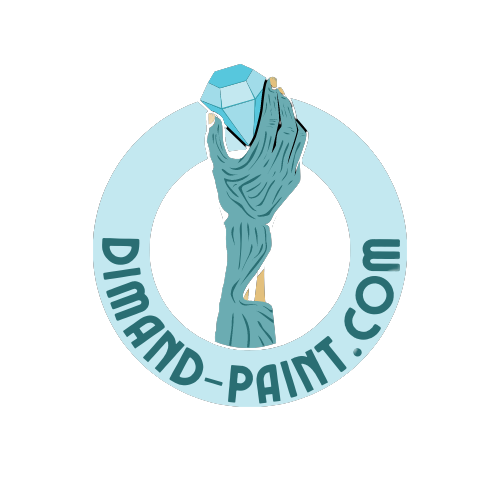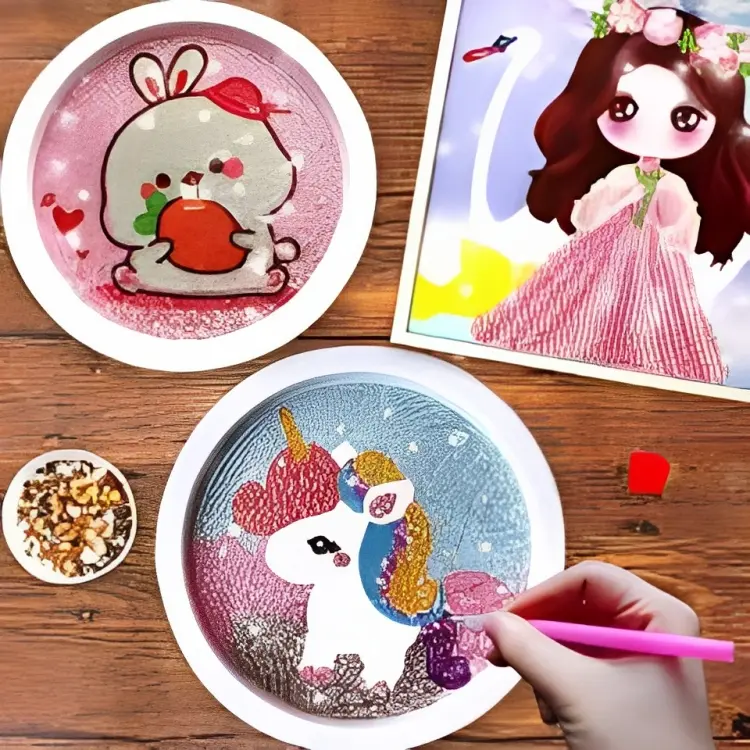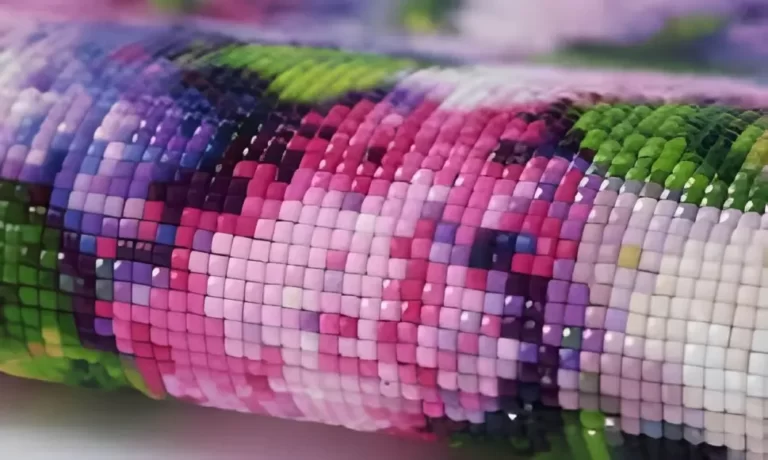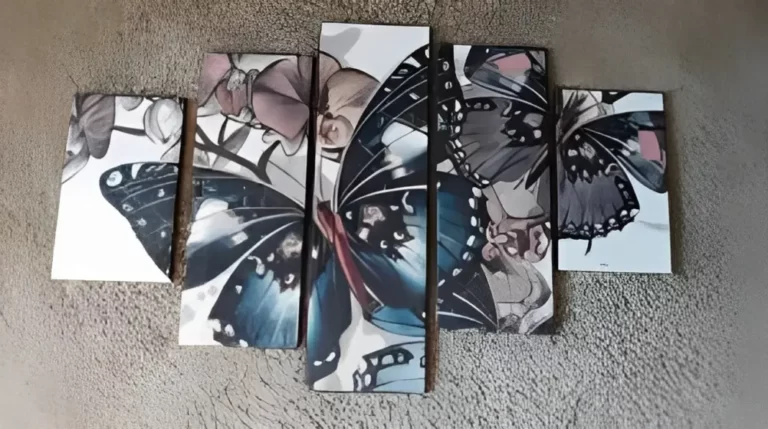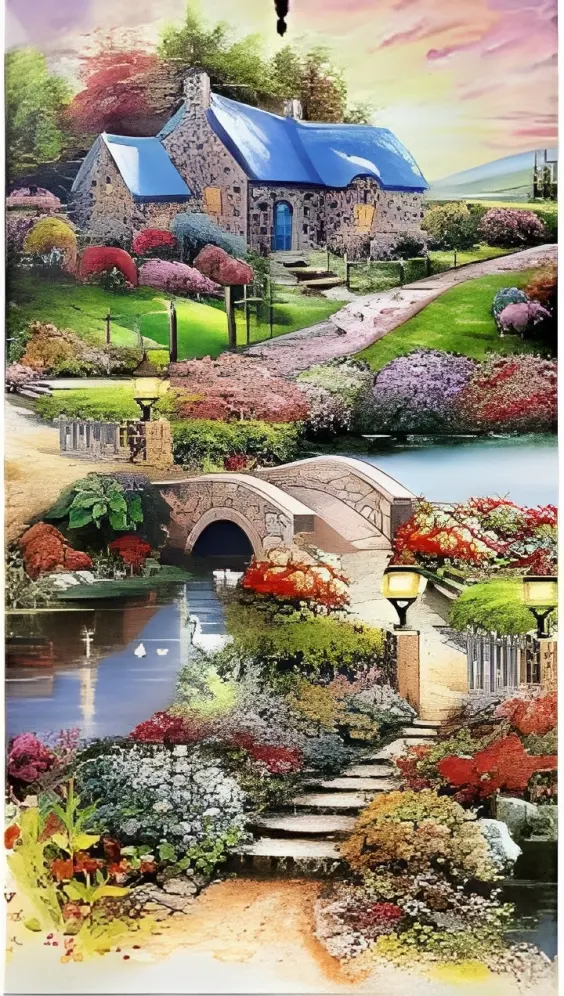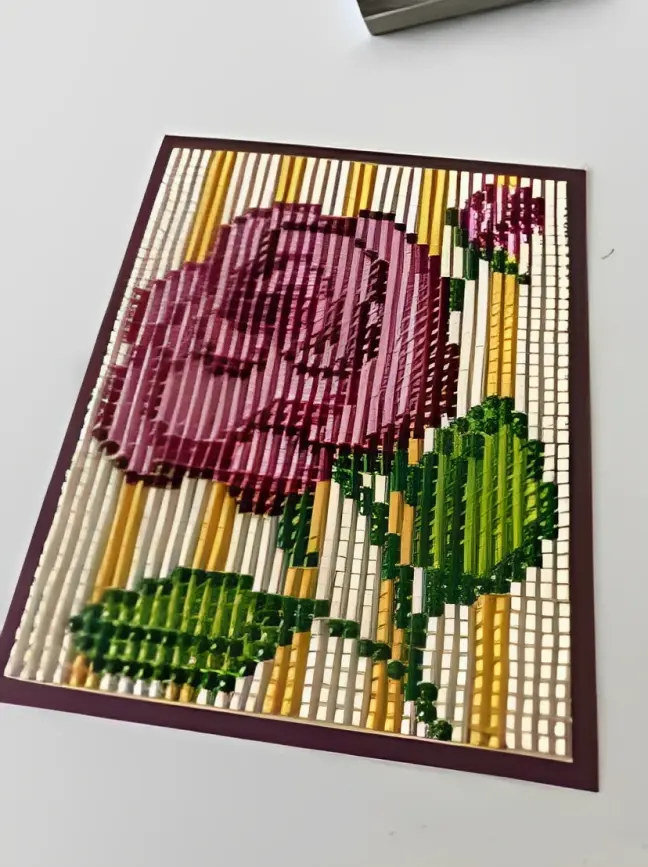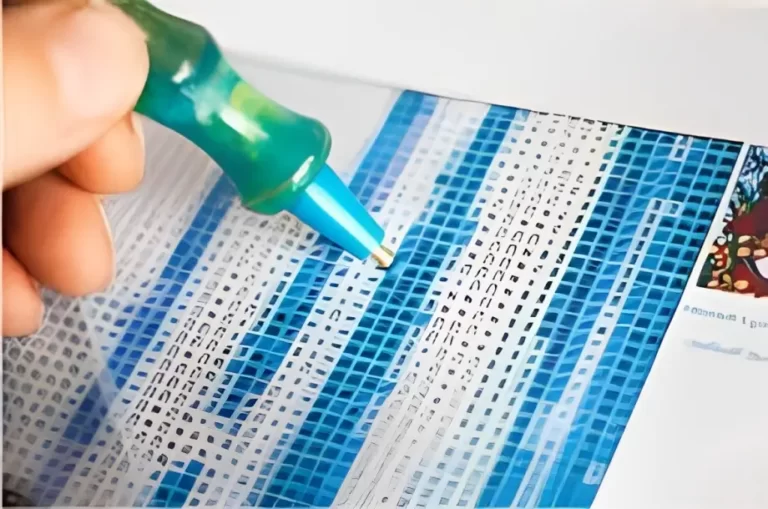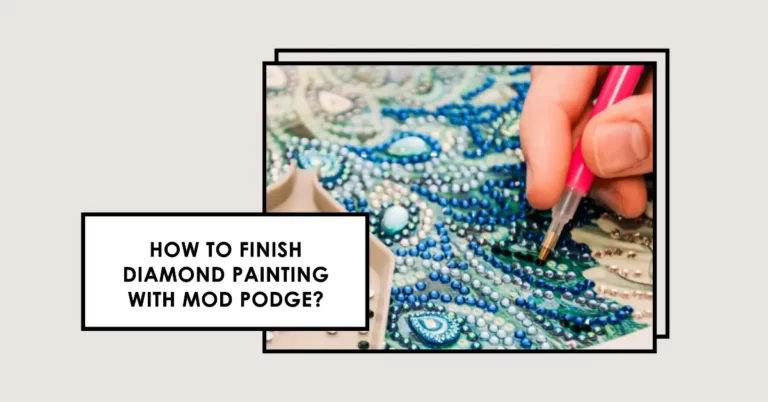Diamond Painting on Unconventional Materials: Exploring Fabric, Leather, and More?
Diamond painting has taken the creative world by storm, captivating craft enthusiasts with its blend of relaxation, mindfulness, and dazzling results. While traditional diamond paintings are typically done on canvases, there’s a whole world of unconventional materials waiting to be transformed into sparkling masterpieces.
In this article, we’ll dive into the exciting realm of diamond painting on unconventional materials, such as fabric, leather, and beyond. Join us as we uncover the possibilities, techniques, and inspiration behind this unique art form.
The Basics of Diamond Painting
Before we delve into the world of unconventional materials, let’s briefly touch upon the basics of diamond painting. This artistic technique involves placing tiny resin rhinestones, referred to as “diamonds,” onto an adhesive canvas. The canvas is divided into sections, each marked with a code that corresponds to a specific diamond color. As you meticulously place the diamonds, an exquisite and sparkling image emerges.
Exploring Unconventional Materials
Diamond Painting on Fabric
Fabric provides a unique texture and flexibility that can elevate your diamond painting experience. Consider choosing a fabric with a tight weave to ensure the diamonds adhere securely. Cotton, linen, and even silk are excellent options. You can experiment with various sizes and shapes of fabric, from small squares to larger pieces for quilting projects.
Elevating Leather with Diamonds
Diamond painting on leather combines opulence with artistic expression. The smooth surface of leather contrasts beautifully with the faceted diamonds. From leather wallets to journal covers, this technique adds a touch of luxury to everyday items. Keep in mind that leather may require a specialized adhesive to ensure a lasting bond.
Embracing Wood as a Canvas
Wood serves as a captivating canvas for diamond painting, offering a natural and rustic backdrop. Wooden panels, boxes, and frames can be transformed into enchanting diamond-studded art pieces. Before you begin, make sure to sand the wood surface for better adhesion.
Choosing the Right Diamonds and Adhesive
Selecting the appropriate diamonds and adhesive is crucial when working with unconventional materials. Opt for high-quality diamonds that catch the light beautifully. Additionally, choose an adhesive that complements the material’s texture and ensures a strong bond. Testing different adhesives on a small area can help you determine the best fit.
Preparing the Unconventional Canvas
Preparation is key to a successful diamond painting project. Clean and prime the surface of your chosen material before you begin. For fabrics, ensure they are free from wrinkles and stretched taut. Leather surfaces should be cleaned and conditioned, while wood should be sanded and sealed if necessary.
Techniques for a Flawless Finish
Creating Intricate Patterns
Unconventional materials open up new design possibilities. Experiment with intricate patterns and gradients that make the most of the material’s texture and sheen. Whether it’s a fabric quilt or a leather accessory, let your creativity shine through.
Blending Colors Seamlessly
Blending colors seamlessly is a hallmark of expert diamond painters. On unconventional materials, achieving smooth color transitions requires meticulous planning. Practice color blending on a separate canvas before applying it to your chosen material.
Showcasing Texture and Contrast
Unconventional materials add an extra layer of texture and contrast to your diamond painting. Consider how the material’s unique qualities can enhance the overall composition. For example, the softness of fabric or the grain of wood can add depth and visual interest.
Adding Dimension with Mixed Media
Combining diamond painting with other artistic techniques can yield stunning results. Incorporate embroidery threads, metallic paints, or even beads to add dimension and visual intrigue to your artwork.
Finishing Touches and Sealing
Once your diamond painting masterpiece is complete, it’s essential to give it the finishing touches it deserves. Use a clear sealant or varnish appropriate for the material to protect the diamonds and ensure their longevity.
Inspiration and Design Ideas
Draw inspiration from a wide range of sources, from nature’s beauty to geometric patterns. Unconventional materials offer exciting possibilities for expressing your artistic vision. Consider creating a collection of diamond-studded accessories or gifting a personalized diamond painting to a loved one.
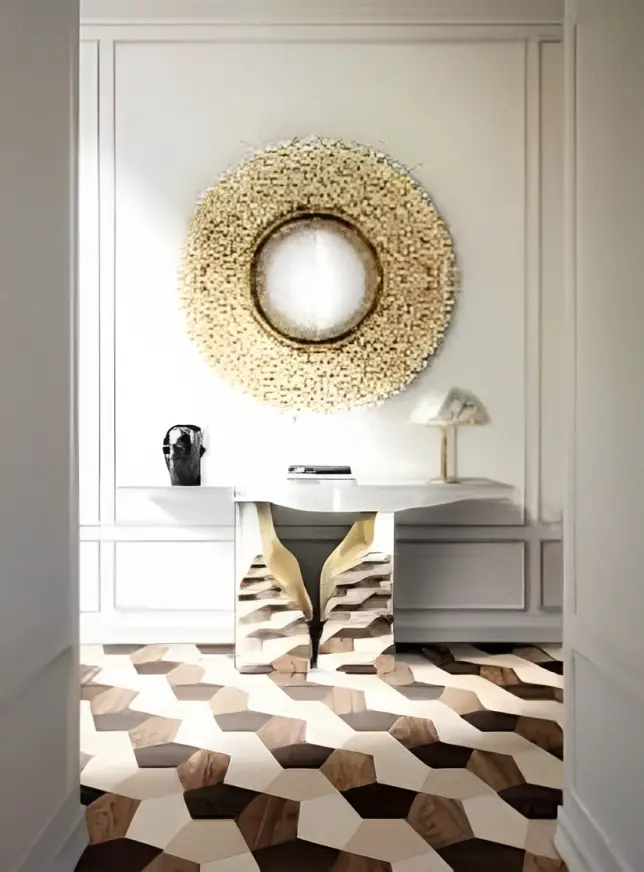
Making Your Masterpiece Shine
Proper lighting can enhance the brilliance of your diamond painting. Place your finished artwork near a natural light source or use adjustable LED lighting to showcase the sparkle of the diamonds.
Tips for a Successful Project
Managing Gem Placement
Precision is key when placing diamonds on unconventional materials. Use a pair of precision tweezers and a light pad to ensure accurate placement, especially on intricate patterns.
Dealing with Tricky Materials
Different materials require different techniques. When working with fabric, avoid stretching it too tight to prevent distortion. For leather, use gentle pressure to prevent damaging the material.
Storing and Displaying Unconventional Diamond Paintings
Storing and displaying diamond paintings on unconventional materials requires careful consideration. Fabric pieces can be framed or incorporated into textile art, while leather creations can be showcased as functional accessories.
Common Challenges and How to Overcome Them
Adhering Diamonds to Different Surfaces
Certain materials may pose challenges when it comes to adhesive bonding. Experiment with specialized adhesives designed for specific surfaces, and ensure proper drying and curing times.
Preserving the Intensity of Sparkle
Maintaining the dazzling sparkle of diamonds on unconventional materials requires diligent care. Keep your artwork away from moisture and direct sunlight to prevent fading and loss of adhesion.
The Joys of Diamond Painting on Unconventional Materials
Exploring diamond painting on unconventional materials is a rewarding journey that combines artistic expression with innovation. From fabric’s soft touch to leather’s luxurious feel, each material brings a unique character to your creations.
Conclusion
Diamond painting on unconventional materials is a thrilling way to push the boundaries of this artistic technique. By embracing fabrics, leather, wood, and more, you’ll unlock new dimensions of creativity and transform everyday items into captivating works of art.
